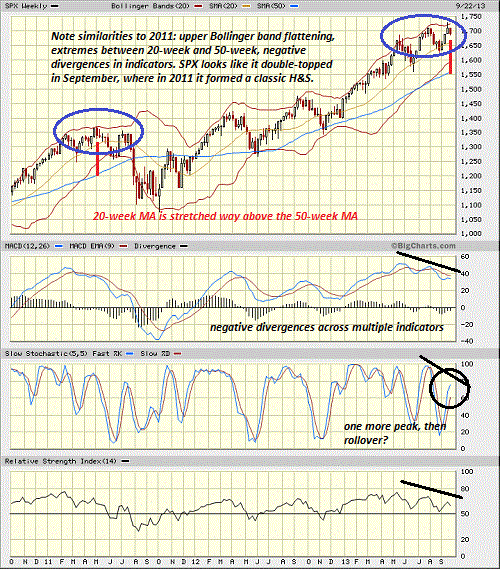“Jim Rogers has a two-word message for U.S. investors: “Be careful.”
“The U.S. is the largest debtor nation in the history of the world,” Rogers told CNBC.com Wednesday night by phone from Singapore. “We may well have a big, big rally in the U.S. stock market, but it’s not based on reality. I would encourage investors to know you’re in a fool’s paradise, be careful, and when people start singing praises, say, ‘I’ve been to this party before, and I know know it’s time to leave.'”
For Rogers, the author of “Street Smarts: Adventures on the Road and in the Markets,” it is only a matter of time until the U.S. stock market runs into devastating problems due to the Fed’s quantitative easing program and the prevalence of similar stimulative programs around the world.
“First of all, throughout American history, we’ve always had slowdowns every four to six years. That means that sometime in the next couple of years—three years, maximum—we are going to have problems again, caused by whatever reason,” Rogers said. “For instance, there was 2001 and 2002, and then 2007 and 2009 was much worse. Well, the next time it’s going to be worse still, because the level of debt is so, so, so much higher. Every country is increasing its debt at the same time.”
Stimulative measures by central banks, such as the purchasing of assets with created money, boost asset prices in the short term. But Rogers said that central banks can only do so much….”
Comments »

